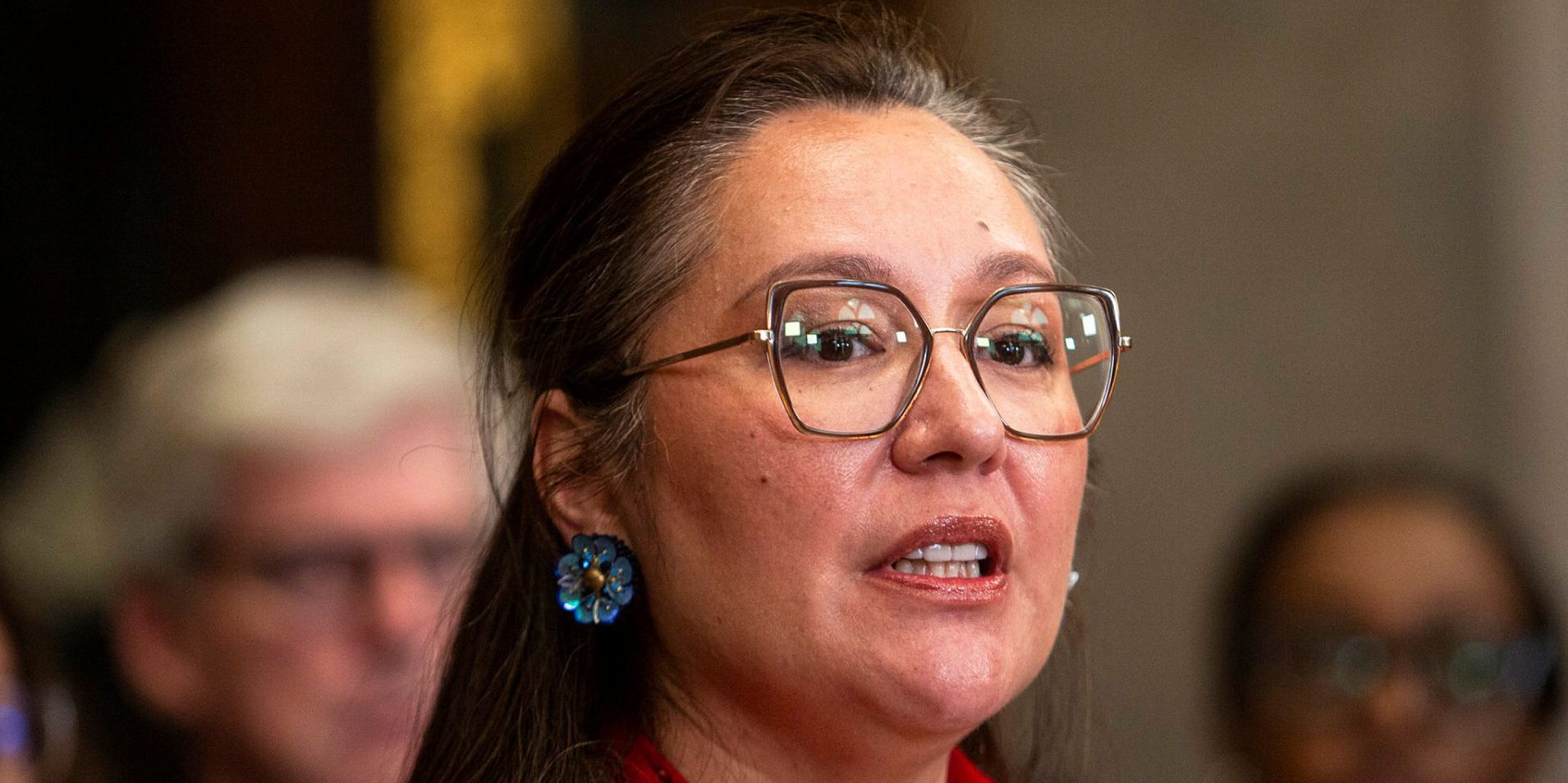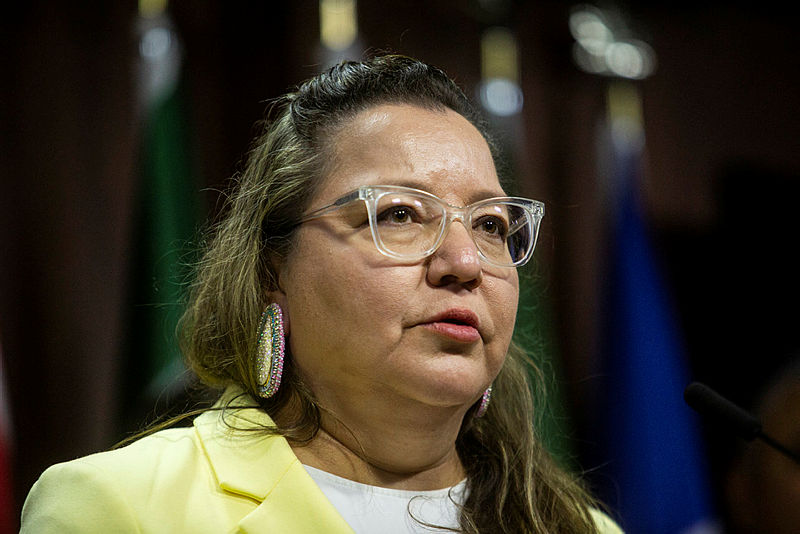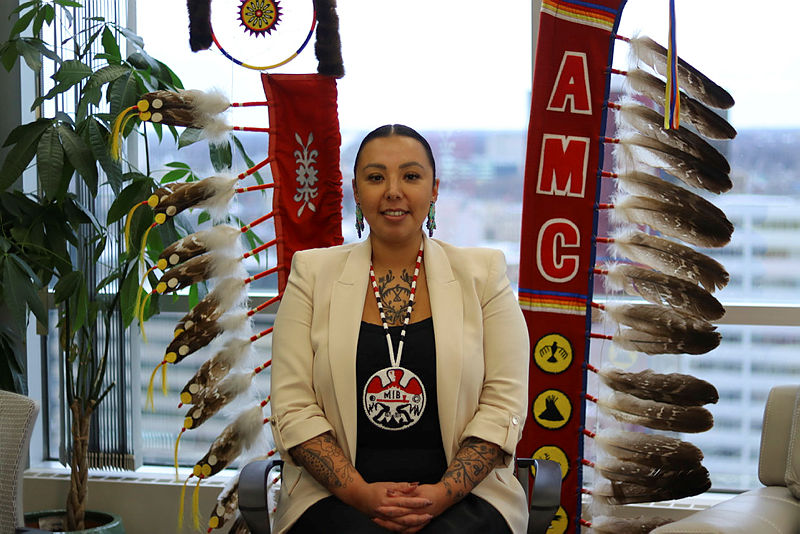Federal major projects office ‘should not take the place of proper consultation with First Nations,’ says AFN national chief

National Chief Cindy Woodhouse Nepinak of the Assembly of First Nations said that while it’s too early to comment on Ottawa’s plan to develop a federal major projects office supported by an Indigenous advisory council, such an office mustn’t take away from speaking to Indigenous rights holders regarding projects of national interest.
“We’re fine with it, but at the same time … that should not take the place of proper consultation with First Nations on any project,” said Woodhouse Nepinak. “What is the makeup of that [advisory council]? What is the composition of that? We look forward to hearing more from the federal government on their thoughts and plans on that. And, of course, dialogue needs to go both ways.”
The One Canadian Economy Act, or Bill C-5, received royal assent on June 26. The legislation enacts the Building Canada Act, which is intended to speed up the approval and development of “national interest projects” (NIPs) by streamlining the federal regulatory process. To help implement this process and to serve as a single point of contact, a new major projects office will be established and supported by an advisory council with First Nation, Inuit, and Métis representatives, according to an Intergovernmental Affairs press release on June 26.
Few details have yet been announced regarding either the major projects office, or the advisory council.
The Hill Times reached out to the Privy Council Office (PCO) for details about the major projects office, such as its structure, leadership, budget, and when it’s expected to begin operation.
Daniel Savoie, a spokesperson for the PCO, responded in an email on July 2 that the major projects office will be established in the coming weeks, and that further details will be shared “in due course.”
“The office will act as a single point of contact and information for proponents, co-ordinating with implicated departments to support timely and efficient project reviews. The office will benefit from support from an Indigenous advisory council with First Nation, Inuit, and Métis representatives,” said Savoie by email.
To help address Indigenous concerns, Prime Minister Mark Carney (Nepean, Ont.) has pledged to personally lead engagement sessions with rights holders over the summer, starting with First Nations on July 17.
Woodhouse Nepinak said that projects worth more than $500-billion are forecast on First Nations territories in the next 10 years, which represent a potential benefit in the trillions, but added that those projects won’t advance without First Nations’ consent.
According to research by the First Nations Major Projects Coalition, there are approximately 470 major projects that will impact Indigenous lands in Canada over the next decade, representing a total capital investment of more than $525-billion.

“While this hard discussion moves to the next stage, the honour of the Crown is still at stake,” said Woodhouse Nepinak. “First Nations are united with Canadians in the fight against [U.S. President Donald] Trump’s illegal tariffs, but Canada won’t win by compromising rights—by rolling back on reconciliation and ignoring legitimate environmental concerns in this bill.”
The Hill Times reached out to the Inuit Tapiriit Kanatami (ITK), a non-profit organization representing more than 65,000 Inuit across Inuit Nunangat and the rest of Canada, to ask for its thoughts about the federal major projects office and the Indigenous advisory council. In response, an ITK spokesperson said in an email on June 30 that they were not sure they had enough information to respond properly, and suggested they might be in a better position to do so at the end of July. The Hill Times also reached out to the Métis National Council, but did not receive a response before deadline.
In response to the royal assent of Bill C-5, the Métis Nation of Ontario (MNO) issued a statement on June 30, saying they recognize the federal government’s intention through the bill to modernize Canada’s approach to infrastructure and economic development, but “we must ensure that progress is not achieved at the expense of Indigenous rights.”
“We urge the Government of Canada to work with us, now and throughout the life of this legislation, to ensure that Bill C-5 delivers prosperity without undermining the constitutional and legal foundation of Indigenous rights in this country,” said the MNO in the press release.
Grand Chief Kyra Wilson of the Assembly of Manitoba Chiefs told The Hill Times that her concern is whether or not the Indigenous advisory council would have any authority when it comes to making decisions regarding NIPs.
“To me, we need to be able to make decisions, and an advisory council—that does not sound like decision-making authority,” she said.
“If you want to work with First Nations, then we need to be at the table where decisions are being made, not as an advisory council. I think right now, as First Nations, we are waiting to see what Canada is going to be doing in moving forward with First Nations. We don’t have a lot of information. All we see is a bill that’s been passed.”

When asked for her thoughts regarding the One Canadian Economy Act, Wilson said the bill opens the door for discussion on how First Nations are going to move forward with Canada, which she said is a positive.
“I am positive that we will be able to work together and come to some sort of conclusion, but what that conclusion is, we as First Nations need to discuss that amongst ourselves and our leadership and our nations, and we will let Canada know,” she said.
“Canada is wanting to work with First Nations. I am grateful that they are wanting to, but there are also the obligations, as a government, that they need to work with First Nations.”
In regard to plans for the Indigenous advisory council to include First Nation, Inuit, and Métis representatives, Wilson said, “It’s great when we are able to come together with our brothers and sisters,” but that she could never speak for Inuit or Métis Peoples.
“As First Nations, we’re not against development … but we need to understand what is that process going to be. What does it mean in terms of ownership, as rights holders and not as stakeholders? What does that mean for revenue sharing, and is that going to include all First Nations? Because it should, and we just need to understand what is this vision that Canada has for this discussion on major projects,” she said. “We don’t have that information right now, so once we have that conversation, then we’ll be able to make informed decisions.”
Upon the royal assent of the One Canadian Economy Act, an Intergovernmental Affairs press release stated that “Indigenous partnership is a vital part of this legislation, and meaningful consultation will be key to the success of future projects.”
The press release also stated that the federal government is committed to respecting the rights of Indigenous Peoples recognized and affirmed by section 35 of the Constitution Act, 1982, and to the United Nations Declaration on the Rights of Indigenous Peoples.
“Together, we are building an economy that works for everyone. The One Canadian Economy Act marks a historic milestone in creating a stronger, more inclusive Canada—one where Indigenous partnership is not only valued, but is fundamental to every step of development,” said Indigenous Services Minister Mandy Gull-Masty (Abitibi—Baie-James—Nunavik—Eeyou, Que.) in the press release.
jcnockaert@hilltimes.com
The Hill Times






 LICENSING
LICENSING PODCAST
PODCAST ALERTS
ALERTS













